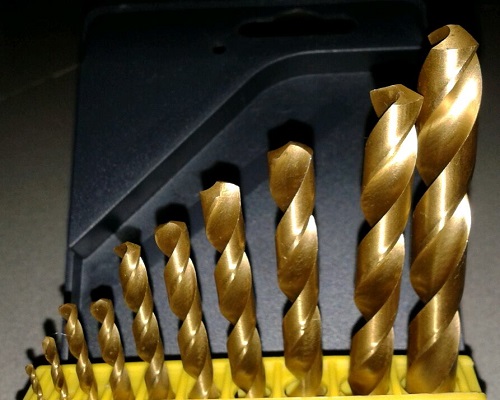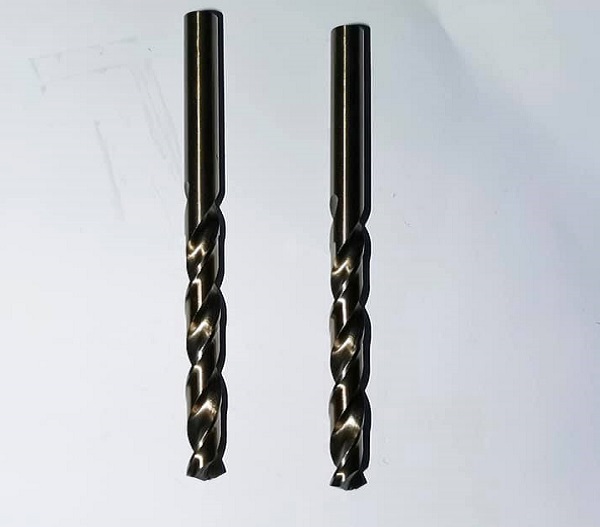If you want to drill holes into hard surfaces, you need the right drill bit. Understanding the different drill bits available is essential whether you are a professional contractor or a DIY enthusiast. Cobalt drill bits are known for their superior strength and are commonly used in metalworking and heavy-duty drilling. For general-purpose drilling, titanium drill bits are preferred because they are more resistant to wear and last longer than cobalt drill bits.
This blog post will explore Cobalt Vs Titanium Drill Bits and why one may be better suited for specific applications. We will compare the two drill bits and examine the benefits and drawbacks of each to help you make an informed decision when selecting the right bit for your project.
Main Differences Between Cobalt & Titanium Drill Bits
Drill bits with a cobalt or titanium coating are considered the most durable. Both cobalt and titanium drill bits are highly resilient and robust, as they are designed to resist overheating when in contact with other metals. As such, it is essential to use a High-Speed Steel (HSS) drill bit for optimal results.
Coating: Cobalt drill bits are composed of an alloy that prevents them from changing their composition while in use. For this reason, Cobalt drill bits are a more reliable choice. On the other hand, Titanium drill bits contain a coating that may wear off, thus altering its chemical and mechanical properties.
Built Ingredients: Cobalt drill bits are composed of a metallic alloy blended metal and cobalt, not a coating. In contrast, Titanium drill bits are constructed from steel and coated with one of three compounds: Titanium Nitride, Titanium Carbonitride, or Titanium Aluminum Nitride.
Cost: The cost of Cobalt drill bits is higher than that of Titanium drill bits.
Speed & High-temperature Tolerance: Cobalt drill bits are more durable when operating at higher speeds than Titanium drill bits. Cobalt drill can handle higher temperatures without becoming misshapen.
Applicable Items: Titanium bits are suitable for drilling various materials, including wood, aluminum, copper, brass, mild steel, and cast iron. On the other hand, Cobalt bits are highly recommended for drilling alloy steel, weld seams, and hardened steel. Their superior strength and durability make them ideal for challenging applications.
Color: Titanium bits have a bright gold or bluish color, while cobalt bits have a dull gold color.
Read More About : 1/2 Inch Vs 3/8 Inch Drill: What’s The Difference?
Titanium Drill Bits Basics

The first advantage of HSS bits is their superior performance at high temperatures. Various metals, including nickel and chrome, are combined with stainless steel to produce them. This drill bit belongs to the high-speed steel (HSS) drill bit family. As a result, the drill bit has excellent strength and durability.
The most commonly used titanium coatings fall into three categories.
- Titanium Nitride (TiN)
- Titanium Aluminum Nitride
- Titanium Carbonitride.
Titanium Nitride (TiN):
Titanium nitride (TiN) coatings are the go-to choice for beginners. Titanium Nitride is typically applied to the drill bit through a magnetic sputtering system. Pre and post-cleaning of the high-speed drill bit are conducted to guarantee the metal is correctly hard coated with no imperfections. The process results in a significant increase in microhardness from 2000-2500 HVM and a reduction in the friction coefficient of 0.1-0.2.
Their distinctive golden hue makes them easily recognizable. Wood drills with a golden-yellow finish are often coated with titanium nitride. Many standard cutting tools, including countersink bits, router bits, and milling cutters, typically feature this coating.
Titanium Carbonitride (TiCN):
TiCN is a chemical compound composed of titanium, carbon, and nitrogen. It is important to note that Titanium Carbonitride (TiCN) coating is superior to Titanium Nitride (TiN).
It typically has a nano-hardness of up to 32 GPAs. On drill bits, the coating layer is typically between 1 to 4 µm in thickness and has a friction coefficient of around 0.2 µm. Furthermore, the physical characteristics of TiCN drill bits remain consistent up to 400°C, making them suitable for drilling applications.
TiCN is known to have higher hardness and more excellent wear resistance.
Titanium Aluminum Nitride (TiAlN)
TiAlN is a combination of Titanium, Aluminum, and Nitride. The Titanium Aluminum Nitride (TiAlN) coating has proven effective at temperatures up to 800°C (1450°F). It forms a layer of aluminium oxide that reflects heat onto the drill chips. This enables higher cutting speeds and feeds, resulting in increased productivity. The TiAlN coating appears grey.
Cobalt Drill Bits Basics

Cobalt drill bits are engineered with a tough material composition. Cobalt drill bits are recognized for their high durability due to their metallic alloy composition, making them tougher than titanium drill bits.
These drill bits differ from titanium drill bits because they consist of cobalt and steel rather than just a coating.
The entire cobalt drill bit is not composed of cobalt. Typically, the composition of the metallic alloy includes 5-8% cobalt. The grades of the bits vary according to the cobalt content; M35 contains 5% cobalt, and M42 contains approximately 8% cobalt in the alloy.
Cobalt drill bits are highly advantageous for cutting through hard metals and steel due to their increased hardness, making them ideal for high-speed applications. Moreover, they are resistant to corrosion and are less prone to deformation.
Similar Read: Black Oxide vs Titanium Drill Bits: Which One is Better?
Cobalt Vs Titanium Drill Bits: Similarities
There are some similarities between titanium drill bits and cobalt drill bits. The similarities are noted below:
Heat-resistance: The incorporation or application of cobalt/titanium significantly enhances drill bits’ mechanical and heat-resistant qualities.
Performance: Both high-speed steel drill bits outperform traditional drill bits regardless of the material, such as wood, metal, or plastic.
Durability: The durability of both drill bits is noteworthy, particularly when compared to high-speed steel drill bits.
Which One Is Better: Cobalt Drill Bits Or Titanium Drill Bits?
Titanium and cobalt are both commonly used to create drill bits; however, they are utilized differently. Generally, titanium is used as a coating for the tip of a drill bit, while cobalt is used to form the entire drill bit.
Additionally, titanium drill bits are often coated along the flute length and cutting tip, providing increased durability.
Titanium drill bits offer a cost-effective solution compared to cobalt drill bits. While cobalt drill bits may require a larger initial investment and are better suited for long-term projects.
Final Talk
To conclude, both cobalt and titanium drill bits have pros and cons. If you need a drill bit that can withstand high temperatures, go for a titanium drill bit. However, if you need a drill bit that is more durable and can drill through tougher materials, then choose a cobalt drill bit.
